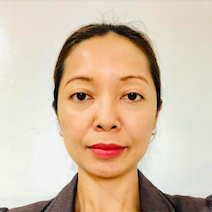

Our economic model is cracking under the weight of so many wrongs. It has been more than a month since the Philippine government implemented an enhanced community quarantine in the National Capital Region, which is home to 13 million people. Other areas of the Philippines followed with general and community quarantine issuances, which are now also in place in Visayas and in Mindanao. As the lockdown continues, food reserves, basic necessities, niceties, and people’s patience are also being depleted. Arguably, however, it can be said these were depleted for millions of Filipinos even way before the declaration of the pandemic. (READ: IN CHARTS: Rich Philippine regions get richer, poor ones barely improve)
While quarantine measures imposed by governments around the world are seen as a way to contain the spread of the virus, it also begs the question: are there better, more humane ways to implement these measures while also reducing secondary hazards for those who have the least ability to cope with impacts of the crisis? After all, no one is safe unless all of us are safe.
It is clear that beating COVID-19 means that we have to reach the poorest and most vulnerable communities first. The adoption of the Sustainable Development Goals for 2030 Agenda commits United Nations Member States, including the Philippines, to ensure that no one will be left behind. Pandemics like COVID-19 have a way of making this commitment even more relevant. In the Philippines, we are now seeing how the sudden and massive displacement of livelihoods is a humanitarian emergency that would necessitate expanded humanitarian aid and additional support to tide them over and reinforce their dignity.
I had a chat with Duoi Ampilan, a former colleague who was a frontline responder during Oxfam’s Ebola response in Liberia and Sierra Leone. He shared his experiences on how the imposition of "total lockdown" was not possible, and can even pose more dangers, because there was no parallel assistance and social safety nets to keep food on people’s tables and financial security to weather the worst of the emergency.
The Ebola crisis also showed the need to continue to maintain separate mechanisms to address gender-based violence in our communities even if we are responding to COVID-19. This means keeping hotlines and gender desks open and having the referral system clearly understood in communities. A gender lens must be incorporated in all plans and strategies to make sure we reach those who are most at risk or underserved. In the Philippines, there are potential increases of gender-based violence and child abuse especially in areas where homes are congested. Now with wage earners being impacted the most by the economic slowdown, we need to think about how this lack of space and lack of food and resources will impact the mental, physical, and psychological health of the family.
Considering how COVID-19 will affect almost all aspects of our social and economic life, the ASEAN Chair’s statement in February calling for a cohesive and responsive ASEAN to successfully curb the spread of the disease rings true. In the ASEAN Special Summit on COVID-19 held last week, leaders emphasized a “whole-of-ASEAN community approach” and called on member states to help each other. Unless we put communities at the front and center of any proposed response, the economic crisis caused by COVID-19 could push more people into poverty, including the middle class, unless urgent and collective action is taken. (READ: What the Philippine economy could be like after the coronavirus)
Collective action is not reserved only for government actors. It also means including the voices of different groups, such as community volunteers, local businesses, and affected populations themselves since they are on the front lines of responding to this emergency. Supporting and funding local humanitarian leadership is needed to augment government efforts in public health promotion. Now is the time to get direct funding to local organizations and to ensure they have the proper compensation and insurance to carry out the work. International and national agencies should not be transferring risk to local organizations and volunteers. Insights from partners, especially on knowledge on local contexts, culture, and behavior will be invaluable in these times. They should be the main decisionmakers, to be supported by international actors only when the need arises.
There is an ongoing narrative that the COVID-19 crisis presents the reset button that we did not realize we needed. Let us challenge this statement. Even prior the COVID-19 crisis, the Philippines has already been beset by persistent high levels of inequality and extreme poverty. These were exacerbated by various factors, which include the country’s disproportionate vulnerability to hazards and disasters; gender-based violence and challenges to women’s economic empowerment; and pockets of armed conflict and fragility that threaten stability and development. This is exactly why we need more than a reset button. If we go back to the way we were, we will end up exactly in the same situation which created and fueled this pandemic to begin with. (READ: [OPINION] Waiting for things to go back to normal isn’t going to work)
Now is the time to collectively push for a vision of a fair and sustainable human economy. This vision will be the strong counter-narrative against those who would want the current system, which perpetuates extreme inequalities, the same even after the COVID-19 crisis. We all truly need more than a reset button. – Rappler.com
Janice Ian Manlutac is the global Local Humanitarian Leadership Advisor for Oxfam and has been working in communities with large-scale fast-onset disaster contexts in rural, urban, and conflict areas in the Asia Pacific, including the Philippines.
Oxfam is an international confederation of 19 humanitarian and development organizations working together with partners and local communities in more than 90 countries.